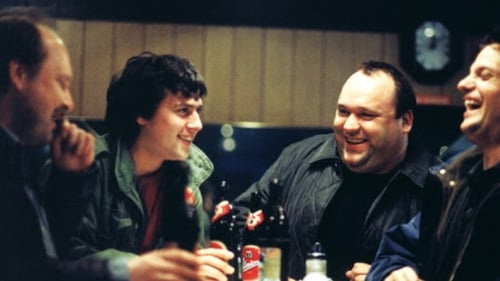
Director
출산을 위해 지역 병원을 찾은 아나는 병원 전산망 어디에도 자신이 등록되어 있지 않은 걸 알게 된다. 단순한 전산상의 오류로 여기고 무사히 출산을 한다. 평생 슬로베니아에서 살았음에도 정부 전산망 어디에도 아나는 존재하지 않는다. 존재하지만 존재하지 않는 사람, 아나는 결국 추방의 위기에 놓이고 아이조차 만날 수 없게 된다. 상황을 해결하기 위해 이리저리 애를 써보지만 누구 하나 귀를 기울여주는 사람이 없다.

Mojca
These are stories from the urban environment, the main characters are people of different generations and come from different walks of life.

Natakarica
Embittered widower, Ludvik, spends his nights transporting illegal refugees in his van from Croatia, across Slovenia, and into Italy. The young and inexperienced Rudi acts as his helpmate. Together they become a well-trained duo who almost every night convey "spare parts" to Italy. Of course the story of their illegitimate exports into Europe ends tragically, for everyone. The whole idea of this account is that everyone - including ourselves - is looking for happiness: the "spare parts" because of the misery they are plunged into without, and our characters because they can't find it inside

Gospa z Rdečega krsta
Egon Vittori (Janko Mandic) is thirteen years old and does not have a record player. It is the beginning of the seventies and Yugoslavia seems to be the land of prosperity. Goods are being imported from the West, and these include American music, films and fashion. Everybody but Egon owns a record player. Finding his path among his family members, hippie owners of music records, schoolmates, teachers, communists and dissidents. Egon gets his record player in the end. And grows up somewhere along the way. Written by (Slovenian film fund)

A story of fragility, sexuality, monstrosities and geographical confusions. Everything, everywhere is the slogan of the nineties, a confusion of bodies, concepts and strategies, a kind of out of joint situation for the subject. And we find ourselves in all the media, in all the bodies in all the possible spaces at ones, but this deadly dance is not innocent. The video consists of the main part in which wives of the so-called totalitarian leaders as of the Rumanian dictator Cauceuscu (Elena) and of the former Serbian leader Slobodan Milosevic (Mirjana Milosevic) are forced to dance. Focused on the portrait of Mirjana Milosevic (The story of Mirjana M.) a kitsch melodramatic Balkan saga of power, drama, pop-folk elements and evil/demons is constructed. The apathy of feelings is caught in the dramatic tango that is slowed down for the camera eye.

After his father's death, a young man (Gregor Bakovic) uses the black mourning flag and sews himself a pair of trousers. He then takes a train trip and meets a variety of bizarre characters, including a stowaway, a deaf-mute duo, a balloon-seller, a bird enthusiast, and an attractive girl (Barbara Cerar). Their railway romance gets derailed, but a variety of sight gags and caboose comedics keep the film on track and in loco motion.





